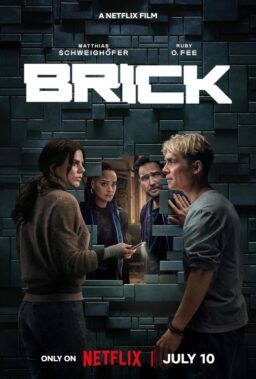TORONTO — The ghosts of good films and old friends haunt the streets of Toronto this year. I am in a nostalgic mood, inspired by the 25th anniversary of the festival.
I hurry between press screenings in the 14 venues of the Varsity, but on my way into the building I pass the Backstage, where in earlier years frigid gusts of air conditioning blew through the room while we braced our knees to keep from sliding out of the slanted seats. The facade of the University Theater, where once there were tributes to Beatty, Scorsese and Duvall, now stands stripped of its body, the skeleton of the projection booth poised eerily in the sky.
George Christie, the Hollywood Reporter columnist, holds an annual luncheon for long-timers and visiting stars and directors at the Four Seasons. I run into Margaret Gardner, the legendary London publicist who brought her clients and their films to Toronto when it was not a must stop on the festival circuit. I remember Renee Furst, the New York publicist who campaigned for foreign films as if they were religions, and who worked her last Toronto festival knowing she had months to live. I say hi to the director Norman Jewison and his wife, Dixie. They held the Sunday festival picnic on their farm when all the guests could fit into a couple of buses, and we marched into the woods to observe the maple sap dripping from the trees.
I see former directors of the festival – Dusty Cohl, Wayne Clarkson, Helga Stephenson and the current boss, Piers Handling, serene as he governs the maelstrom. I hear that Bill Marshall, who co-founded the festival with Dusty and Hank van der Kolk, is in the hospital.
Garth Drabinsky, facing troubles in the Cineplex Odeon lawsuits, sits next to me at the luncheon. He sighs as he mentions “the current situation” in passing. He is saluted in Christie’s toast because in George’s mind the primary identity of everyone in the room is as “a member of our annual luncheon family” and our real lives are obscure diversions.
Walking into the Uptown on Sunday morning, I have a sudden flash of Jay Scott, the late film critic of the Toronto Globe and Mail, ahead of me on the stairs, wearing the sleeveless T-shirt of an unknown punk band, his shoulder bag jammed with press releases and tapes. He always moved as if he was on his way to a great film only he could rescue from oblivion. He put a paragraph into every sentence. Thinking of Jay, I remember David Overby, who searched the distant corners of world cinema for discoveries, programmed them into the festival, and defended them while chain-smoking the Galoises that killed him.
At the anniversary dinner in honor of Stephen Frears on Saturday night, I see connections in the way people are grouped. Here is John Cusack, a foot taller than you expect, grinning in the corner with Cameron Crowe. In 1989 Crowe directed him in “Say Anything,” one of the best movies ever made about teenagers, and the film that launched Cusack’s career. Now Crowe is here with “Almost Famous,” a film that seems to be unanimously loved. And here is Patrick Fugit, the star of “Almost Famous,” also taller than you expect. Does he look at Cusack, and muse?
Here is Donald Westlake, the mystery writer, who adapted his novel The Grifters into a screenplay for Frears. It also starred Cusack. Westlake is attending the dinner, he says, because “23 of my books have been made into films since 1966, and Stephen Frears is the only one of those directors I would walk across the street to speak to.”
Jeff Bridges is clowning with Jeff Dowd. Dowd is The Dude, a producer’s rep and publicist who works as a buccaneer for films he loves. He started with the Coen brothers’ “Blood Simple,” and they immortalized him in “The Big Lebowski.” Bridges played Lebowski in the movie. Now The Dude pulls out a joint – just as a prop, he says, for a photo with Bridges.
I stay for the cocktail hour but not for the dinner, because I must see “The Trouble with Tully.” It is the Dude’s cause this year. As we lope down Bloor Street, we talk about “George Washington,” one of this year’s really special films. There is a line in the movie, one character saying to another: “Is that the Bible, or Shakespeare?” He assumes if it sounds poetic and inspiring, it must come from one of the two holy books.
Our conversations always drift far from where they start. I inform The Dude that Shakespeare’s name is hidden in the 46th psalm of the King James version. “There is a theory that he did a little rewriting and touching up on the psalms,” I say.
“I can absolutely understand that,” The Dude says. “A lot of artists, they’ll make a commercial between gigs, pick up a little change.”
I am thinking about how effortlessly The Dude personifies The Dude. We wait for the light to change so we can cross the street. He sighs. “I ran into Huey Lewis, man,” he says. “Huey plays Gwyneth Paltrow‘s father in ‘Duets.’ I’m exactly the same age as Huey is, but I’m not ready to start thinking about Gwyneth Paltrow as my daughter yet.”
I know, Dude. I know. And always at my back I hear time’s winged chariot, drawing near.











